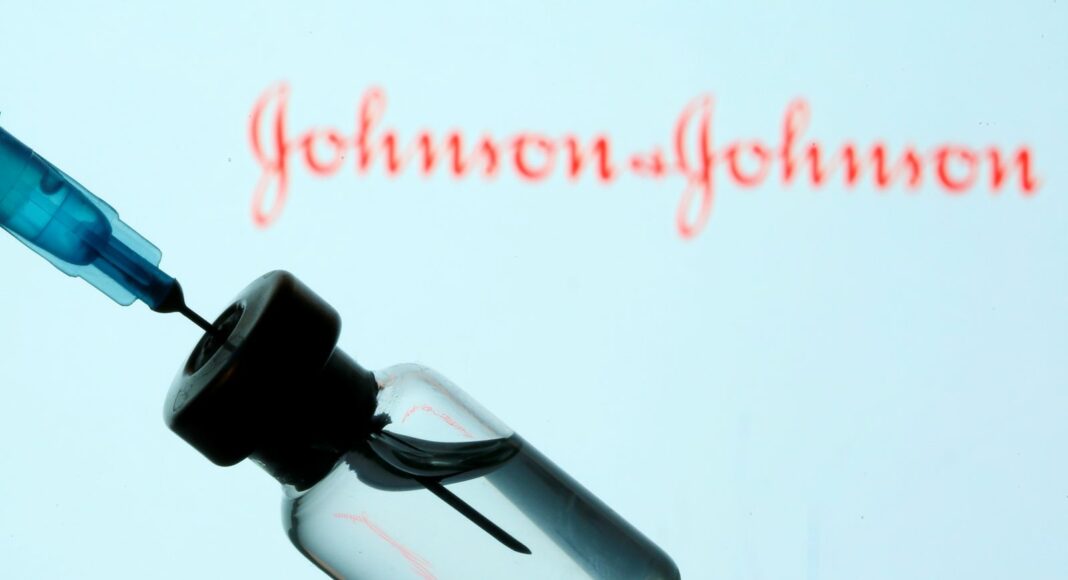The European Medicines Agency says it has found a possible link between the Johnson & Johnson COVID vaccine and very rare cases of unusual blood clots.
European regulators say that unusual blood clots with low blood platelets should now be listed as “very rare” side effects of the vaccine.
But they stressed that the “overall benefits of the vaccine in preventing COVID-19 outweigh the risks of side effects”.
The new warning is based on eight “serious” cases in the US, one of which resulted in the person dying.
COVID news – live updates from the UK and around the world
All eight people were under the age of 60 and developed clots within three weeks of vaccination, the EMA said, with the majority of cases being women.
They were “very similar to the cases that occurred with the coronavirus vaccine developed by AstraZeneca”, it added.
The Johnson & Johnson vaccine, which is given as a single jab as opposed to the traditional two doses, has been administered to more than seven million people in the US, as of 13 April.
It has not been approved for use in the UK, but the government has ordered 30 million doses.
The EMA says it will “continue to monitor the vaccine’s safety and effectiveness and proe the public with the latest information” after the rollout in Europe was halted over blood clot concerns.
Although the risk of such serious side effects are “very low”, regulators are urging people in Europe to report any of the following symptoms within three weeks of getting a Johnson & Johnson vaccine:
Shortness of breathChest painLeg swellingPersistent abdominal painSevere or persistent headachesBlurred visionTiny blood spots under the skin beyond site of injection
Earlier this month, the EMA resumed the rollout of the AstraZeneca vaccine following reports of rare blood clots.
In a statement mirroring the one issued on Tuesday, they said that unusual blood clots with low platelets should be listed as a “very rare” side effect of having the jab.
Similarly to the Johnson & Johnson investigation, they found that most of the serious cases were in women under 60.
Several European countries had stopped issuing the Oxford-AstraZeneca jab over the concerns.
The UK has now issued guidance that advises people between the ages of 18 and 29 to have a different vaccine, after three people under 30 died as a result of blood clots associated with the AstraZeneca jab.
A recent study by Oxford University suggested that the risk of getting blood clots from the virus itself is eight times higher than developing them after having the AstraZeneca vaccine.




